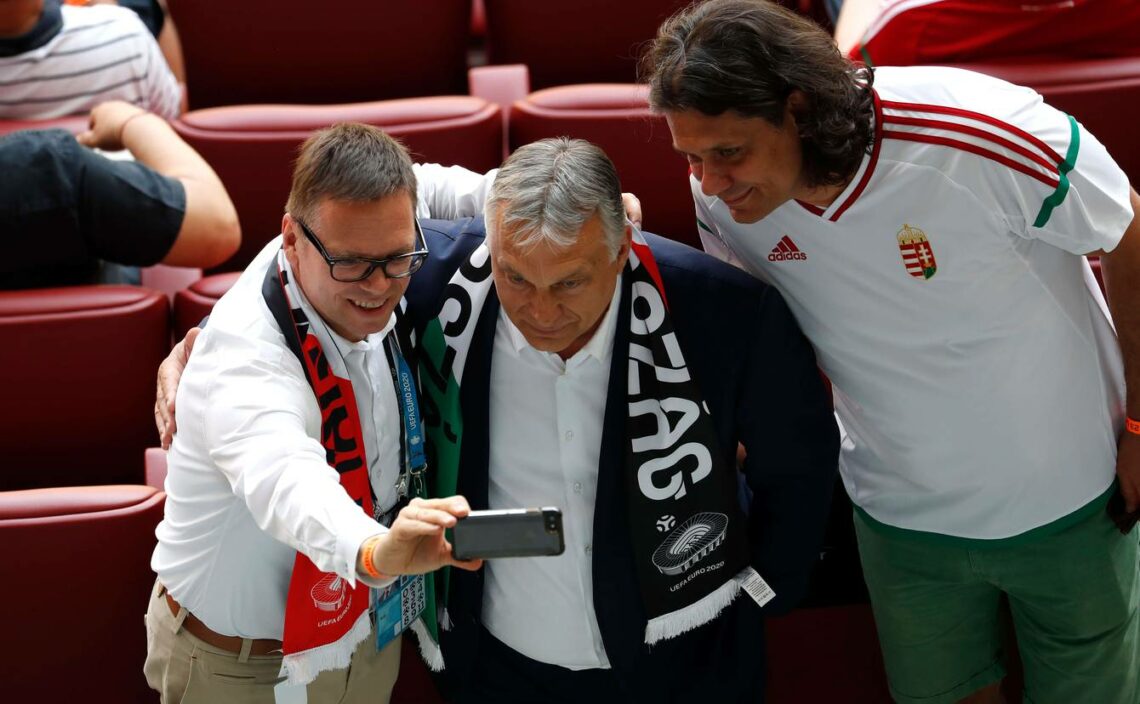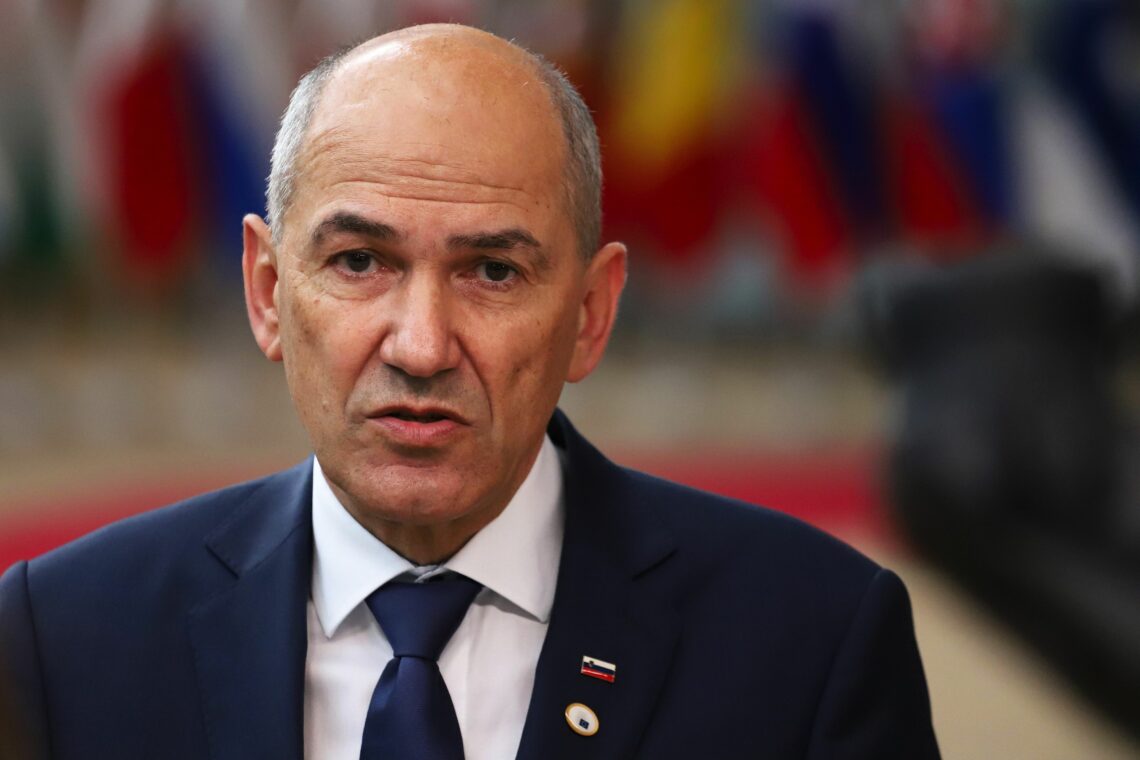EU values and double standards
Relations between Brussels and new member states in Central and Eastern Europe have deteriorated. The Union’s relentless pursuit of a “community of values” has fueled resentment in many countries, lending credence to the claims of anti-EU leaders.

In a nutshell
- The EU has become a ‘community of values’
- Brussels has focused its criticism on Hungary and Poland
- The Czech Republic could be targeted next
Can the prime minister of a small country that holds the presidency of the Council of the European Union call for an international investigation into human rights violations by the Iranian regime? Slovenian Prime Minister Janez Jansa did so in a video message to the “Free Iran World Summit” held in Berlin on July 10 – and he was scolded for it by EU Foreign Affairs Commissioner Josep Borrell. In his address, Mr. Jansa called for an investigation into the role of Iranian President Ebrahim Raisi in the extrajudicial executions of thousands of political prisoners in 1988.
The Iranian opposition activists in Berlin received similar support from former State Secretary Mike Pompeo (United States) and former Foreign Minister Franco Frattini (Italy), as well as from more than 30 American parliamentarians from both the Democratic and Republican parties.
Diplomatic dustup
The next day, the Slovenian ambassador in Tehran was summoned to the foreign ministry. Iranian Foreign Minister Javad Zarif had complained in Brussels about the “unacceptable” remarks of the Slovenian prime minister, from which Commissioner Borrell immediately distanced himself. The EUObserver quoted Mr. Borrell as saying that Prime Minister Jansa’s statements “did not represent the European Union, most definitely not … they were certain opinions of the Slovenian prime minister.”
Human rights violations in Iran apparently do not count.
Politico commented: “The diplomatic dust-up highlights the EU’s growing struggles with the controversial Slovenian leader’s current prominent role within the bloc after Slovenia assumed the EU’s rotating presidency at the beginning of July.”
The remarkable news that the EU foreign affairs representative had made derogatory remarks about the EU Council president to the representative of an Islamist dictatorship was neither reported nor commented on by most German-language media. But Mr. Borrell had fallen short of an imperative laid out by Commission President Ursula von der Leyen in her State of the Union 2020 speech: “We must always call out human rights abuses whenever and wherever they occur.” Human rights violations in Iran apparently do not count.
Fundamental disagreement
Since the migration crisis in 2015, relations between the EU Commission and the majority of the old member states of the Union on one hand, and new member states in Central, Southern and Eastern Europe on the other, have deteriorated. Conflicts have broken out in virtually all policy fields and the tone is becoming sharper.
In May 2021, Hungary became the focus of Western criticism because it vetoed an EU resolution calling on Israel and the Palestinian terrorist organization Hamas to cease hostilities. It was not possible, Hungarian Prime Minister Viktor Orban said, “to equate a state, Israel, with an organization on the EU sanctions list.” The states of the“Franco-German axis are known to have millions of Muslim citizens whose views cannot be neglected in a democracy. But it also must be taken into account that in Central Europe, … only a negligible number of such citizens live. We can also see that most western European countries have entered an era of a post-national and post-Christian concept of life. But it cannot be ignored that we still live our lives according to Judeo-Christian values, a Judeo-Christian culture and concept of life.”
It is striking that by now almost all conflicts between the mainstream EU and the EU pariahs in the east are being fought over “European values.” This was particularly evident in June and July 2020 during the UEFA European Football Championship. A Hungarian law prohibiting, among other things, the exposure of children and young people under the age of 18 to lesbian, gay and transsexual sexual practices gave rise to a campaign against Prime Minister Orban’s government. Top EU politicians and almost all Western European media participated.
The nature of the law gave rise to valid criticism that deserves to be taken seriously. Nevertheless, according to EU treaties, youth protection and sex education are competencies reserved for the member states. The EU had to justify its intervention by invoking a supposed violation of “fundamental values.” The law was said to violate such values because it discriminated against people because of their sexual orientation.

Since an increasingly rapid change in values is taking place in the West, the rights of homosexuals, transsexuals, intersexuals and bisexuals (LGBTIQ) and their lobby are considered sacrosanct. Although this change is likely to take hold sooner or later in the eastern part of the EU, where Christianity is losing ground to secularism, this could still take several years. And that is too slow for the promoters of this radical shift in values. During the anti-Hungarian campaign, which was celebrated under the sign of the rainbow flag during the UEFA EURO 2020, Luxembourg Foreign Minister Jean Asselborn even proposed an EU referendum on “whether one still wants to tolerate Orban in the EU.” Since such a referendum would not be legal under the current provisions, Mr. Asselborn even suggested amending the EU treaties.
Dutch Prime Minister Mark Rutte also expressed the view that Hungary had no place in the Union, but that, unfortunately, they could not be pushed out. Arguments of this kind are adding fuel to the fire of euroskeptics in Central, Eastern and Southern European countries. It confirms their suspicion that the EU will only tolerate them on the condition that they adopt the values of the Western elites.
State vs. values
Twenty years ago, Robert Spaemann published an essay entitled “Europe – Community of Values or Legal Order?” “Talk of values,” the philosopher argued, “is both trivial and dangerous.” It is trivial because every community has certain values in common. It becomes dangerous when it wants to replace fundamental rights with basic values. “The Third Reich was undoubtedly a community of values,” namely those ideals that were considered superior at the time – nation, race and health. The state, much like in the Marxist ideology, was only an agent of these highest values. That is why the party was always above the state in case of doubt. Whenever “the state power, invoking higher values, considers itself legitimized to prevent people from doing something that no law allows it to prohibit, there is danger ahead.”
Besides Hungary, the attack of the EU community of values is focused on Poland.
Parliamentary democracy is increasingly transforming into elite rule that escapes democratic control. The pandemic is accelerating this transformation. Across the parties, experimental radicalism has taken hold in the liberal elites that want to turn the world upside down. This phenomenon is manifesting itself in various forms: in ecologism and climate extremism, in genderism, in a humanitarianism that smuggles millions of migrants from Africa and Asia into Europe and blames the “White race” for all of the world’s misfortunes. It is no wonder that politicians from Central, Eastern and Southeastern Europe who defend traditional cultural, national and religious identity are popular not only in their own countries, but also in conservative, nationalist and sovereigntist parties and movements in Western Europe.
Besides Hungary, the attack of the EU community of values is focused on Poland. The EU, writes the American theologian and church historian Alan Fimister, “is pursuing Poland for its alleged attack on democracy. Brussels, founded as an economic union, has now become a community of values – these are not the values cherished by the Polish government in what is still a Catholic country.”
The most recent attack on the conservative Polish government was ignited by a bill to “re-politicize” the media by reducing the exceptionally high proportion of foreign ownership. The bill proposes only allowing companies majority-owned by entities from the European Economic Area to hold broadcast licenses. Critics accuse the government of trying to shut down the popular anti-government broadcaster TVN and its news channel TVN24, which is owned by the American media giant Discovery. The Polish law limits the corresponding share of owners outside the EEA to 49 percent. Austria also has a 49 percent limit. Spain and Cyprus limit the share to 25 percent, France to 20 percent. The Polish government’s accusation of double standards in the EU cannot be easily dismissed.
Criticism can easily be politically instrumentalized.
After Hungary, Poland and Slovenia, the European values commissioners will likely also target other postcommunist countries. Next, they will probably focus on the Czech Republic. There, Prime Minister Andrej Babis is particularly vulnerable because of well-founded accusations that he has mixed public and private interests. Corruption, abuse of power, cronyism and political-economic networks are typical of all transition societies, and criticism of them can easily be politically instrumentalized. The Baltic republics, Slovenia, Croatia and Romania try to keep out of the line of fire by either remaining neutral in most conflicts or siding with the EU Commission, but their rejection of migrants puts them at odds not only with Brussels, but also the Mediterranean countries on whose shores the migrants arrive. This is a matter of objective clashes of interests that are unlikely to disappear even if sovereigntists sympathetic to Messrs. Orban, Jansa and Kaczynski come to power in Rome, Madrid and Paris.







